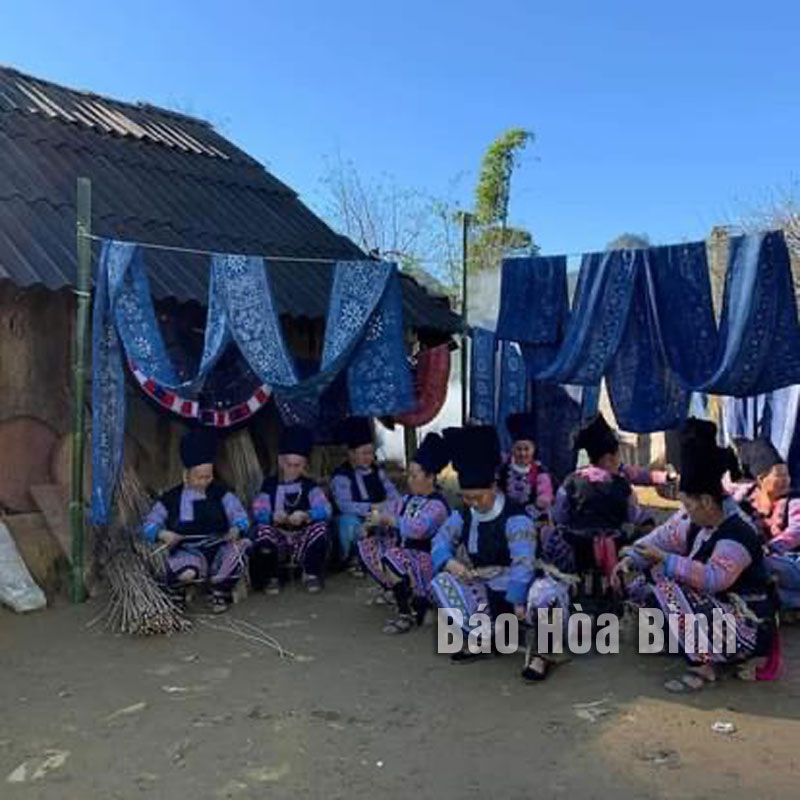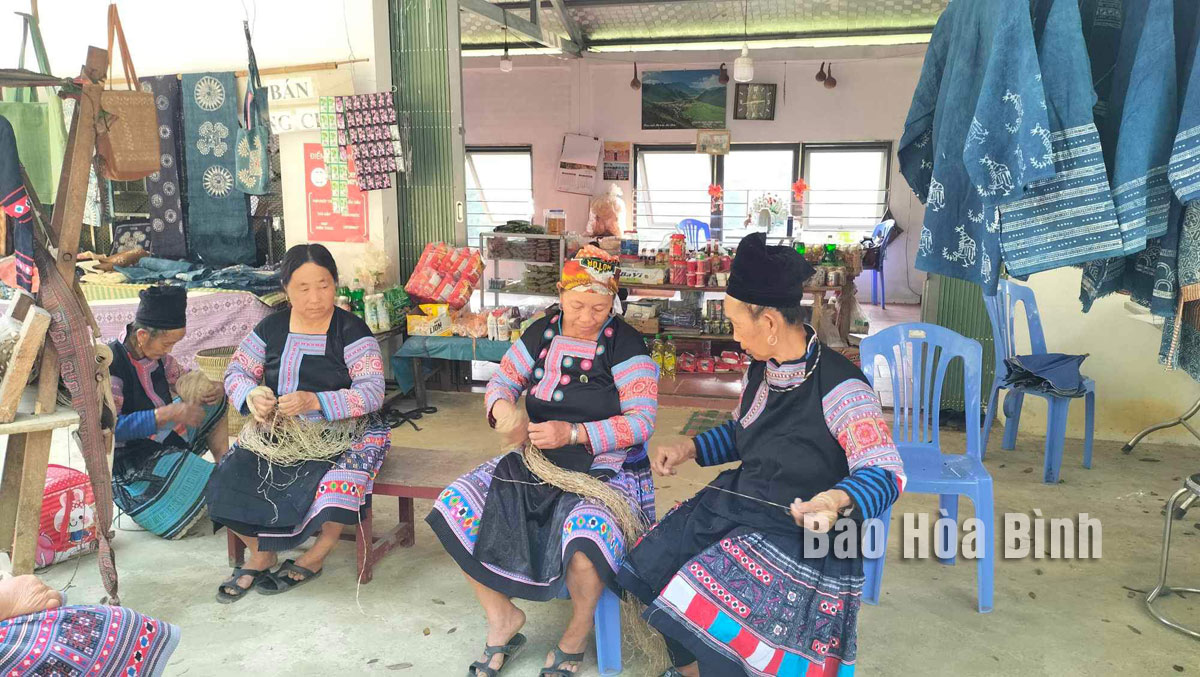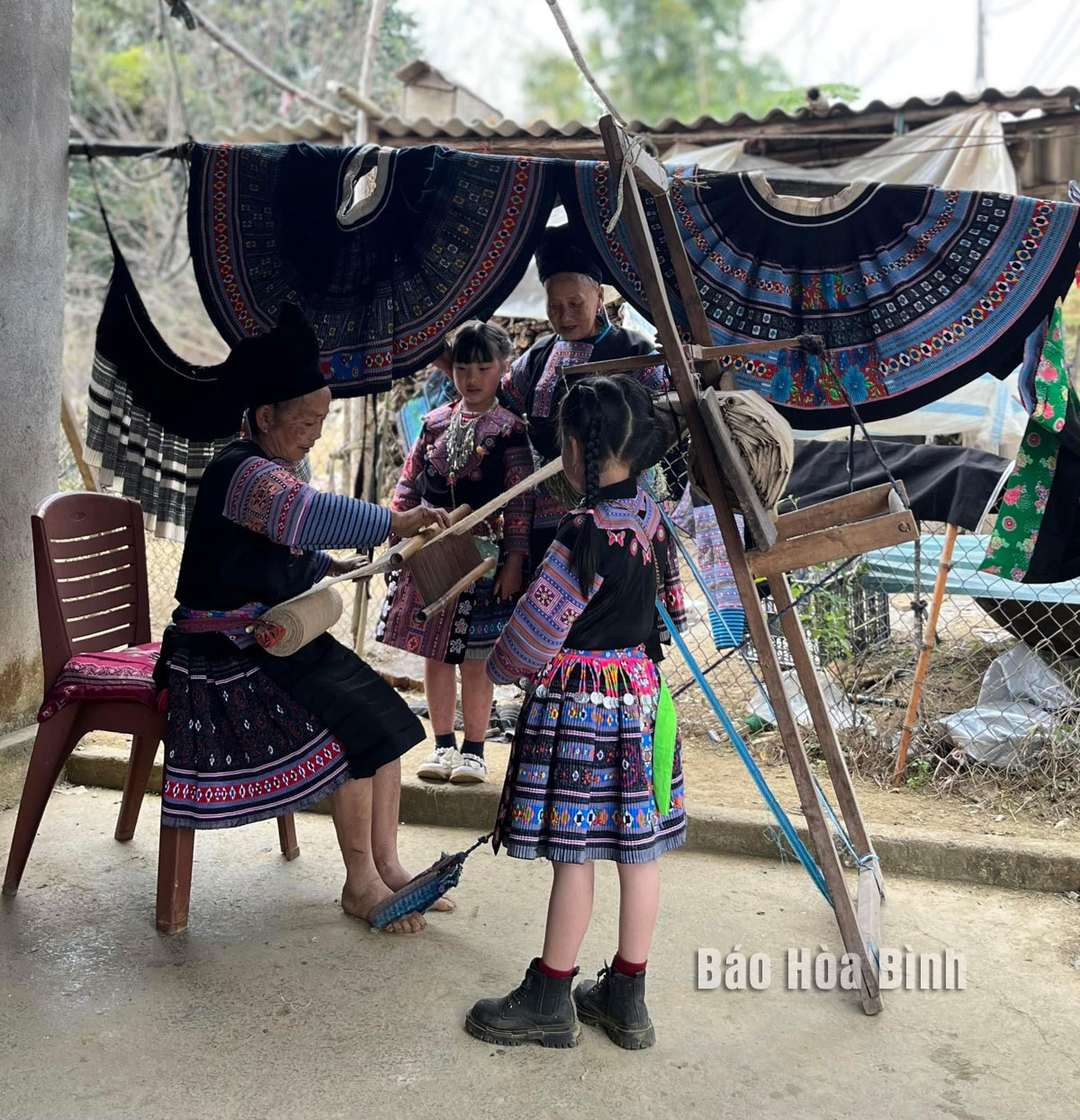
(HBO) - From tree... to yarn... then working hard day after day, month after month with the patience and diligence of Mong women in Pa Co commune (Mai Chau), the linen sheets being into shape is an image of cultural beauty, a link to the past, a standard for evaluating a woman's quality.
Every year, around February and March of
the lunar calendar, when it starts to rain, the flax seeds are planted at a
high density so that the plant grows straight and thin, without many branches
and twigs, and gives good quality. Flax fiber is harvested after about 60 - 70
days from the date of sowing. The costumes ofMong people are uniquely shaped on linen with a clever combination of
three basic techniques: embroidery, beeswax painting and fabric piecing.

Mong people in Pa Co commune harvest flax.

The people are peeling the flax bark into
small fibers, then connect them and roll them into rolls.

Mong women always carry with them a handful
of flax fibers to spin.

The process of drawing beeswax to print
patterns on the fabric to highlight the outfit.

The weaving process is usually done by the
elderly in the family.
In the last historic days of April, blending with the joyful atmosphere of the whole country, on the streets of Hoa Binh City, flags, banners and slogans are brilliantly decorated to celebrate the 50th Anniversary of Southern Liberation and National Reunification. Here are the records from Hoa Binh newspaper’s reporters:
Nestled halfway up the mountains in Cao Son commune, Da Bac district, Sung village appears like a picture preserved intact through generations. With a history of over 300 years, the village is home to nearly 100 households of Dao Tien ethnic group – the people who still maintain their distinctive characteristics in housing architecture, clothing, customs and traditional crafts. The village is drawing increasing interest and exploration from both domestic and international tourists, as every visit becomes a cultural journey to experience the authenticity, friendliness, and hospitality of this highland region.
This Spring, more than 1,000 phoenix trees in Thang Hamlet, Thach Yen Commune (Cao Phong) have bloomed brilliantly, quickly spreading on social media. The picturesque beauty of the flower garden has attracted the participation of many people to admire and take photos.
This belief is both a guiding principle and a lifelong ambition for Sa Van Cam, a member of the Tay ethnic group in Da Bac district and a passionate advocate for the Tay culture. The native has devoted years to the revival, preservation, and teaching of the ancient Tay script.
Located just 25 km from Hoa Binh city and approximately 100km from Hanoi, with a journey of around 1 hour 45 minutes, Ngoi Hoa ecotourism site (PriorBay Resort) in Suoi Hoa commune, Tan Lac district, is a stunning peninsula retreat, and a standout destination within the Hoa Binh Reservoir tourism area. Officially opening in February this year, the resort captivates visitors with its distinctive vacation products and a range of exciting adventure experiences.
Over 1,500 women paraded in traditional ao dai (long dress) at Hoa Binh Square on March 5 to mark Ao Dai Week 2025 launched by the Vietnam Women's Union. Organised by the provincial Women’s Union in collaboration with the city’s chapter, the annual event features lively folk dance performances and a colorful parade that celebrated the beauty of Vietnam’s traditional dress and its rich cultural heritage.







